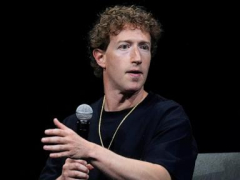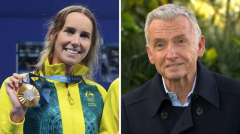“Everyone is entitled to his own opinion, but not his own facts,” the late New York Sen. Daniel Patrick Moynihan memorably wrote four decades ago.
That seems like a simpler time — especially when you consider Meta’s decision to end a fact-checking program on social media apps Facebook, Instagram and Threads and what the ramifications might be for an industry built to bring clarity and to seek truth itself.
Meta founder Mark Zuckerberg’s announcement this week was widely seen in news verification circles as a genuflection to president-elect Donald Trump, whose first term in office popularized the phrase “alternative facts.”
Meta is replacing its fact-checking with a “community notes” system reminiscent of X, where it depends on users to correct misinformation on its platforms. In a way, that hearkens back to “he said-she said” journalism, or the view of some political debate moderators that it should be the role of opponents, not journalists, to point out falsehoods. It also hints at something else: the notion that the loudest voices and the best-told stories can win the day.
The moment is a crossroads for the fact-checking industry, which will see its influence sharply curtailed when Trump takes office for his second term.
“In the short term, this is bad news for people who want to go on social media to find trustworthy and accurate information,” said Angie Drobnic Holan, director of the International Fact-Checking Network. Her organization started in 2015 with about 50 members and now has 170, some of whom face staff cuts and potential closure because of Meta’s move.
“In the long term,” she said, “I think it’s very uncertain what this will all mean.”
Fact-checking is an odd industry, particularly when you consider that it’s a function of all journalism. The concept bubbled up about three decades ago in part to counter “he said-she said” stories and monitor claims in political ads. The organization FactCheck.org, whose primary aim was to help reporters, started in 2003 and the more public-facing PolitiFact four years later.
PolitiFact, started by then-Tampa Bay Times Washington bureau chief Bill Adair in 2007, won a Pulitzer Prize for its 2008 campaign coverage. It called out politicians for bending or breaking the truth in ways often difficult for reporters who were protective of the sources whose voices populated their stories.
By 2012, fact-checkers were under attack, primarily by Republicans convinced many were biased and researched voting records to try and prove the point, said Adair, now a Duke University professor. Trump, he said, “sped up a trend that had already begun.”
Some conservative suspicion of fact-checkers ha




